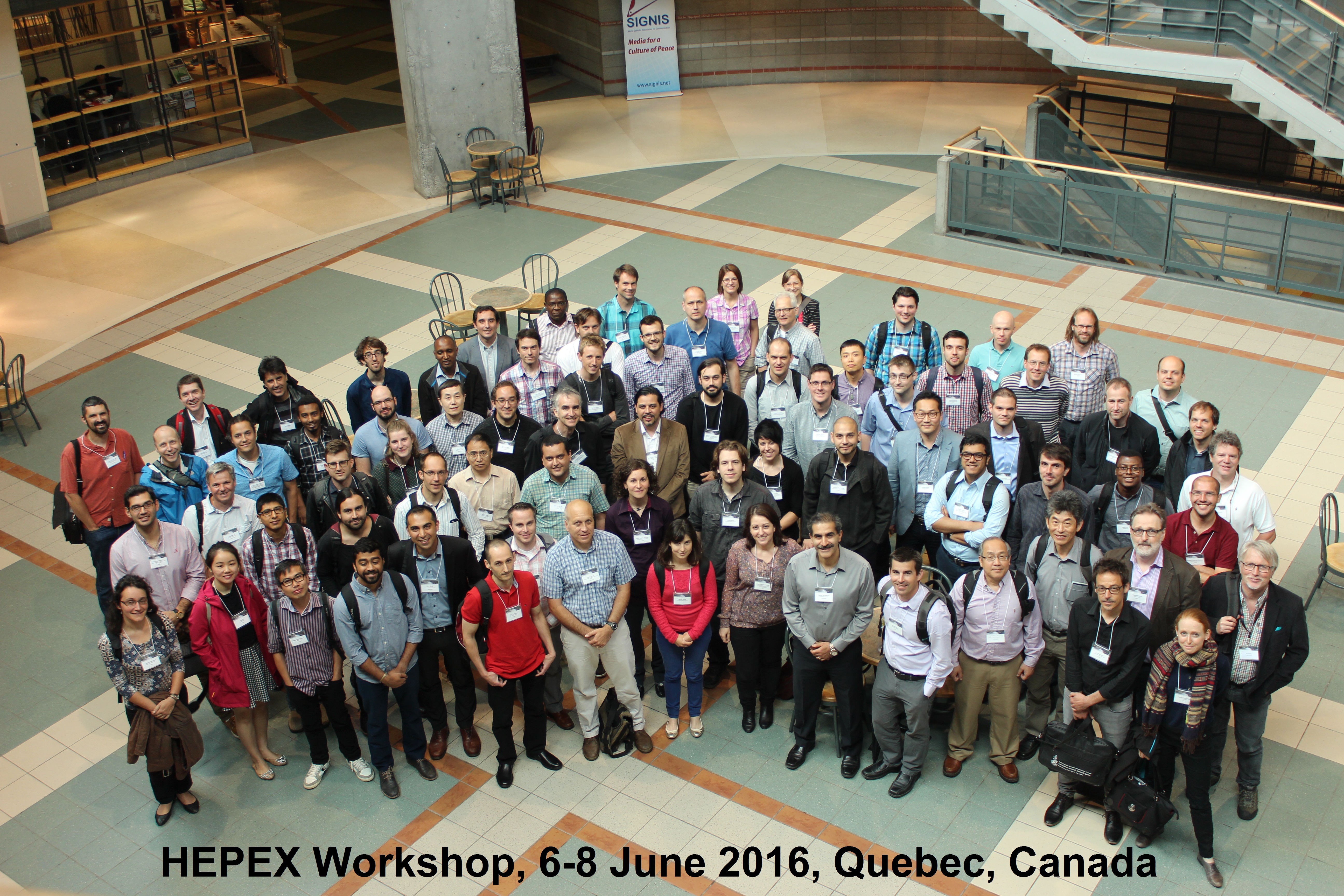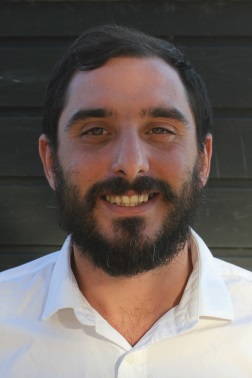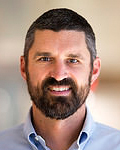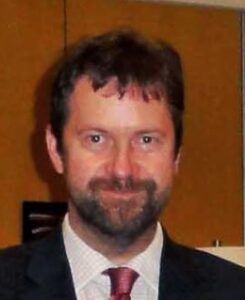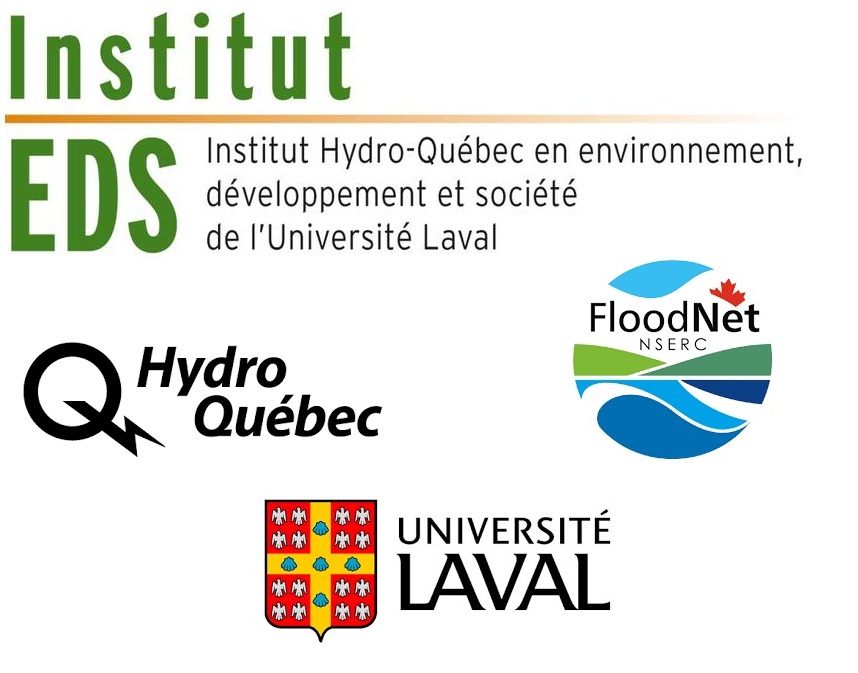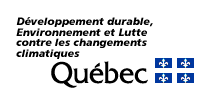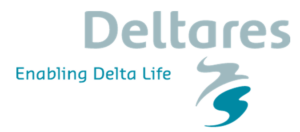Programme and keynote speakers
Thanks to all participants! The presentations made available by the authors can be downloaded from the links inside the programme below.
The summary of the workshop can be found here
Workshop participants – Visit the HEPEX Photo Gallery to see this and other photos from previous workshops
WORKSHOP PROGRAM
- Keynote speakers
- Day 1: Mon, June 6th
- Day 2: Tue, June 7th
- Day 3: Wed, June 8th
- Break-out day session: Thu, June 9th
- Posters
- Support funding
Download the HEPEX 2016 Book of Abstracts (update: June 1st, 2016)
Download the 2016 HEPEX Workshop Programme (update: June 1st, 2016)
KEYNOTE SPEAKERS
| How forecasts can trigger humanitarian action
“As challenging it is to develop a highly skillful forecast, it will not be the main driver of community action. More important is to understand the set of actions that a targeted user group could take. My talk will outline the Red Cross Red Crescent forecast based financing initiative, emphasizing how forecasts can trigger humanitarian action.” [read more=”Read more about Andrew Kruczkiewicz” less=”Read less”] Andrew joined the Climate Centre as a technical adviser specialized in climate risk management in 2014. He is also a staff research associate and lecturer at the International Research Institute for Climate and Society at Columbia University in New York City, focusing on remote sensing and early warning. Andrew graduated from Columbia University’s Climate and Society master’s programme, and interned for NASA researching the application of satellite data to monitoring inundation in East Africa. Before Columbia, Andrew studied finance at Fairfield University and meteorology at Western Connecticut State University. For more information, visit the Climate Centre website. [/read] |
| Hydrological forecasting from a Great Lakes perspective
Andrew is a Physical Scientist at NOAA, Great Lakes Environmental Research Laboratory since 2010, and Adjunct Assistant Professor of the University of Michigan since 2013. [read more=”Read more about Andrew Gronewold” less=”Read less”] He holds a Ph.D. on Environmental Science and Policy, from Duke University (2008) and a B.S., from Cornell University on Civil and Environmental Engineering (1995). His research interests are on hydrological and water quality modeling, with a focus on propagating uncertainty and variability into model-based management decisions. Specific research areas include predicting runoff in ungauged basins, recreational water quality dynamics in Great Lakes Beaches, and incorporating probability theory and Bayesian statistics into watershed-scale forecasting models. Find more about Andrew Gronewold on his website. [/read] |
| Lessons learnt from the 2011 Lake Champlain and Richelieu River floods
Jean-François is chief of Hydrological Operations – East at Environment and Climate Change Canada. His conference will focus on a proposal for a new forecasting system in a context of high expectations of local communities and from the perspective of cross-border collaboration. [read more=”Read more about this flood event” less=”Read less”] The 2011 Lake Champlain and Richelieu River floods was a series of water level increases that began during the end of April 2011 and caused a subsequent overflow of the Richelieu River in Canada and Lake Champlain in the United States: more in English and in French following the links. [/read] |
| 8.30 – 9.00: Registration and coffee (venue) | ||
| 9.00- 9.10 | Welcome note from local organizers and HEPEX co-chairs (PDF) | F. Anctil, MH Ramos |
| 9.10- 9.20 | Welcome note from FloodNet: an NSERC Canadian Strategic Network |
FloodNet representative |
| Session 1 – Producing ensemble predictions and communicating PDFuncertainty in hydrologic forecasting Chair: Maria-Helena Ramos |
||
| 09.20- 09.40 | Do we (still) need ensemble predictions? (PDF) | Pappenberger (ECMWF, UK) |
| 09.40- 10.00 | Progress toward ensemble flood and 7-day streamflow forecasting services for Australia (PDF) | Robertson (CSIRO, Australia) |
| 10.00- 10.20 | Forecasting at Quebec provincial government for flood prediction and dam management – an overview of the current operational methods and challenges producing forecast uncertainties (PDF) | Roussel (MDDELCC, Canada) |
| 10.20- 10.40 | Assessing the potential of over-the-loop short-to-medium range ensemble forecasts using SHERPA (PDF) | Wood (NCAR, USA) |
| 10.40 – 11.10: Coffee break | ||
| Session 2 – Keynote talk and discussions Chairs: Vincent Fortin and Andy Wood |
||
| 11.10- 11.40 | Keynote talk: Hydrological forecasting from a Great Lakes perspective (PDF) | Andrew Gronewold (NOAA, Great Lakes Environmental Research Laboratory) |
| 11.40- 12.30 | Plenary discussion | |
| 12:30 – 14:00: Lunch (sponsored by Rio Tinto) |
||
| Session 3 – Advances in data assimilation schemes for operational forecasting systems Chair: Antoine Thiboult |
||
| 14.00- 14.20 | Improving hydrologic prediction through state updating (PDF) | Weerts (Deltares, Wageningen University, the Netherlands) |
| 14.20- 14.40 | Accounting for combined effect of initial condition and model uncertainty in seasonal forecasting through data assimilation (PDF) | Moradkhani (Portland State University, USA) |
| 14.40- 15.00 | How much can we improve the hydrological forecasting skill in snow dominated regions via snow data assimilation? (PDF) | Pechlivanidis (SMHI, Sweden) |
| 15.00- 15.20 | A comparison of two approaches for state updating with the particle filter in a Nordic watershed | Chimi (INRS) & Boucher (UQAC), Canada |
| 15.20- 15.40 | Comparison of Kalman filter type and variational data assimilation approaches for operational hydrology (PDF) | Schwanenberg (University of Duisburg-Essen, Deltares, the Netherlands) |
| 15.40 – 16.00: Coffee break | ||
| Poster session (sponsored by MDDELCC) | ||
| 16.00- 17.00 | See list of posters below |
|
| 17.00 – 18.00: Ice Breaker (sponsored by FloodNet) | ||
| Session 4 – Enhancing science, applications and operations in hydrologic ensemble prediction systems Chair: QJ Wang |
||
| 09.00- 09.20 | Processing outputs from a land-data assimilation system in order to get ensemble streamflow predictions for free: do we get more than what we paid for? (PDF) | Fortin (ECCA, Canada) |
| 09.20- 09.40 | “Upgraded” meteorological forcing for operational hydrological ensemble predictions: challenges, risks and chances (PDF) | Zappa (WSL, Switzerland) |
| 09.40- 10.00 | Ensemble flow forecasting for hydropower operations (PDF) | Voisin (PNNL, USA) |
| 10.00- 10.10 | Operational Hydrologic-hydraulic Ensemble Prediction System in Urban Watersheds: Runoff and Combined Sewer Overflow (CSO) Forecasts in the City of Hoboken, NJ (PDF) | Saleh (Stevens Institute of Technology, USA) |
| 10.10- 10.40 | Opportunities and challenges of transitioning to an inflow forecast system of higher complexity at BC HYDRO (PDF) | Gobena (BC HYDRO, Canada) |
| 10.40 – 11.10: Coffee break | ||
| Session 5 – Making decisions based on uncertain forecasts and economic value Chair: Nathalie Voisin |
||
| 11.10- 11.40 | The game of making decisions under uncertainty: How sure must one be? (soon available here) | Werner & Ramos |
| 11.40- 12.10 | Plenary discussion: How HEPEX can contribute to decision-making in hydrologic forecasting and operations? | |
| 12:10 – 12:30: Group photo | ||
| 12:30 – 14:00: Lunch (sponsored by Deltares) |
||
| Session 6 – Value of (imperfect) hydrologic predictions in decision-making and management of water systems Chair: Luc Perreault |
||
| 14.00- 14.20 | Investigating quality and value of dissimilar streamflow forecasting systems | Thiboult (Université Laval, Canada) |
| 14.20- 14.40 | Assessing the economic value of an ensemble hydrological forecast: case of the Montmorency river | Matte (UQAC, Canada) |
| 14.40- 15.00 | Impact of better forecasts on a decision model for hydropower (PDF) | Cassagnole & Ramos (IRSTEA, France) |
| 15.00- 15.20 | Understanding the statistical structure of GCM ensemble forecasts | QJ Wang (CSIRO) |
| 15.20- 15.40 | Development and implementation of a probabilistic medium-range forecasting service for waterway transport on the River Rhine (PDF) | Klein (Federal Institute of Hydrology, Germany) |
| 15.40 – 16.00: Coffee break | ||
| Round table: Towards a socio-hydrology framework for hydrologic forecasting and water-related disaster management Chairs: François Anctil and Richard Turcotte |
||
| 16.00- 16.30 | Keynote talk: How forecasts can trigger humanitarian action (PDF) | Andrew Kruczkiewicz (IRI/Columbia University and Red Cross Red Crescent Climate Centre, USA) |
| 16.30- 17.00 | Keynote talk: Lessons learnt from the 2011 Lake Champlain and Richelieu River floods |
Jean-François Cantin (Government of Canada) |
| 17.00- 17.30 | Plenary discussion | |
_________________________________
Day 3:
8 June 2016 (Wednesday)
| Session 7 – Quality of (imperfect) hydro-meteorological predictions for hydrologic applications Chair: Marie-Amélie Boucher |
||
| 09.00- 09.20 | Evaluating the U.S. National Weather Service Hydrologic Ensemble Forecast Service (HEFS) in the Middle Atlantic Region for flood and drought applications (PDF) | Reed (National Weather Service, NOAA, USA) |
| 09.20- 09.40 | Meteorological ensemble forecast verification study at the catchment scale over Quebec, Canada | Arandia Martinez (Hydro-Québec, Canada) |
| 09.40- 10.00 | An exchangeable construction for ensemble forecasts post-processing (PDF) | Courbariaux (AgroParisTech-INRA, France) |
| 10.00- 10.20 | Multivariate Statistical Postprocessing of ensemble forecasts of precipitation and temperature over four river basins in California (PDF) | Scheuerer (University of Colorado/NOAA, USA) |
| 10.20- 10.40 | Preserving the space-time dependence structure in hydro-meteorological forecasts: a case study with analogue derived PQPF (PDF) | Bellier (Université Grenoble Alpes, France) |
| 10.40 – 11.10: Coffee break | ||
| Session 8 – Extended-range predictions Chair: Ilias Pechlivanidis |
||
| 11.10- 11.30 | Towards timelier, sub-seasonal to seasonal streamflow forecasts in Australia to better meet user needs (PDF) | Schepen (CSIRO, Australia) |
| 11.30- 11.50 | From seasonal forecasts to scenarios of climatic variability (PDF) | Werner (UNESCO-IHE, Deltares, the Netherlands) |
| 11.50- 12.10 | Benchmarking different approaches for harnessing predictability in climate and hydrologic initial conditions for seasonal streamflow forecasting (PDF) | Mendoza (NCAR, USA) |
| 12.10- 12.30: Update on the HEPEX seasonal forecasting inter-comparison experiment, by Andy Wood & Andrew Schepen (PDF) | ||
| 12:30 – 14:00: Lunch (sponsored by Université Laval) |
||
| Session 9 – Practical solutions for uncertainty assessment in operational hydrologic forecasting systems Chair: Florian Pappenberger |
||
| 14.00- 14.20 | Towards improved error modelling for short-term streamflow forecasting in Australia (PDF) | Ming Li (CSIRO, Australia) |
| 14.20- 14.40 | Towards probabilistic flood forecasting in France (PDF) | Marty (DREAL, France) |
| 14.40- 15.00 | The hydrological ensemble prediction in Feilaixia basin (PDF) | Aizhong Ye & Qingyun Duan (BNC, China) |
| 15.00- 15.20 | An operational hydrological ensemble prediction system in the Winnipeg River Basin (PDF) | Bomhof (Lake of the Woods Secretariat, Canada) |
| 15.20- 15.40 | Efficient uncertainty analysis in streamflow prediction for reservoir operation (PDF) | Arsenault (Rio Tinto, Canada) |
| 15.40- 16.00 | Closing note |
HEPEX co-chairs and local organizers |
END OF WORKSHOP
__________________________
Day 4:
9 June 2016 (Thursday)
| Break-out session: “Assimilate your basin” | ||
| 09.00- 13.00 | Check here | Limited number of places and specific pre-registration required (registration is closed) |
| Organizers: Dirk Schwanenberg (Deltares, University of Duisburg-Essen), Albrecht Weerts (Deltares, Wageningen University), Rodolfo Alvarado Montero (University of Duisburg-Essen), Peter Krahe (German Federal Institute of Hydrology) | ||
_________________________________
LIST OF POSTERS
- Hydrologic ensemble prediction: enhancing science, operation and application through HEPEX, HEPEX co-chairs (here)
- The peak box game – two years and 250 participants later, Liechti et al.
- Ensemble streamflow forecasting activities with WRF-Hydro, McCreight et al.
- Variational data assimilation by moving horizon estimation and a probabilistic pool of Conceptual Hydrological Models, Alvarado Montero et al.
- Investigating the relationship between precipitation input and model parameter distribution during calibration: initial results from 72 Canadian basins, Kornelsen and Coulibaly.
- Evaluating the impact of biased precipitation on multivariate data assimilation for streamflow predictions, Bergeron et al.
- Flood forecasting for rivers over cold regions using GRACE satellite observations, Wang.
- Comparison of ensemble verification metrics on daily mean flows and monthly peak flows, Seid Awol, et al.
- How do I know if I’ve improved my continental scale flood early warning system? Cloke et al.
- Verification of multi-model precipitation forecasts for optimal decision making in water management, Van den Bergh et al.
- Verification and comparison of seasonnal meteorological ensemble forecasts for long-term hydropower plant management in Nordic watersheds, Bazile et al.
- Impact of dynamical downscaling on land surface model forcings, Roundy et al.
- Development of a gridded meteorological ensemble forecast processor at US National Water Center, Wu et al.
- From meteorological to hydrological post-processing: the question for an effective approach, Moradkhani et al.
- Post-processing and verification of monthly hydrological forecasts in Switzerland, Monhart et al.
- Post-processing ensemble precipitation forecasts using geometric model combination, Robertson et al.
- Can post-processed meteorological ensemble forecasts outperform a sophisticated analog model for operational streamflow forecasting? Boucher et al.
- Exploiting the novel Canadian Meteorological ensemble reforecasts for the post processing of their ensemble forecasts, Abaza et al.
- Systematic pairing of ensemble initial conditions and ensemble forecasts in an automated hydrologic forecast system, Clark et al.
- Seasonal hydrological predictability and the NMME-based forecasting over the Yellow River basin in China, Yuan et al.
- Seasonal forecasting of river discharge in the upper Yellow River based on the distributed grid and physical process based VIP model and beyond, Mo et al.
- A comparison between streamflow ensemble forecasts of an extreme hydrological event using inputs from the ECMWF and GFS ensemble weather models, Saleh et al.
- Critical flood event prediction based on multiple meteorological scenarios from TIGGE propagated into different hydrological conceptual models and neural networks configurations – Study case: La Mojana, Colombia, Brochero et al.
- Ensemble water temperature forecasting: accounting for uncertainty associated with meteorological inputs, Ouellet-Proulx et al.
- SWIFT2: Software for continuous ensemble short-term streamflow forecasting, Perraud et al.
_________________________________
General guidelines:
- Orals: Please note that the duration given to each oral presentation includes 3 min. for questions and discussion
- Poster: Poster boards can accept landscape or portrait formats
